Press Release
Defi Scams – Most Common Scams in the DeFi Space
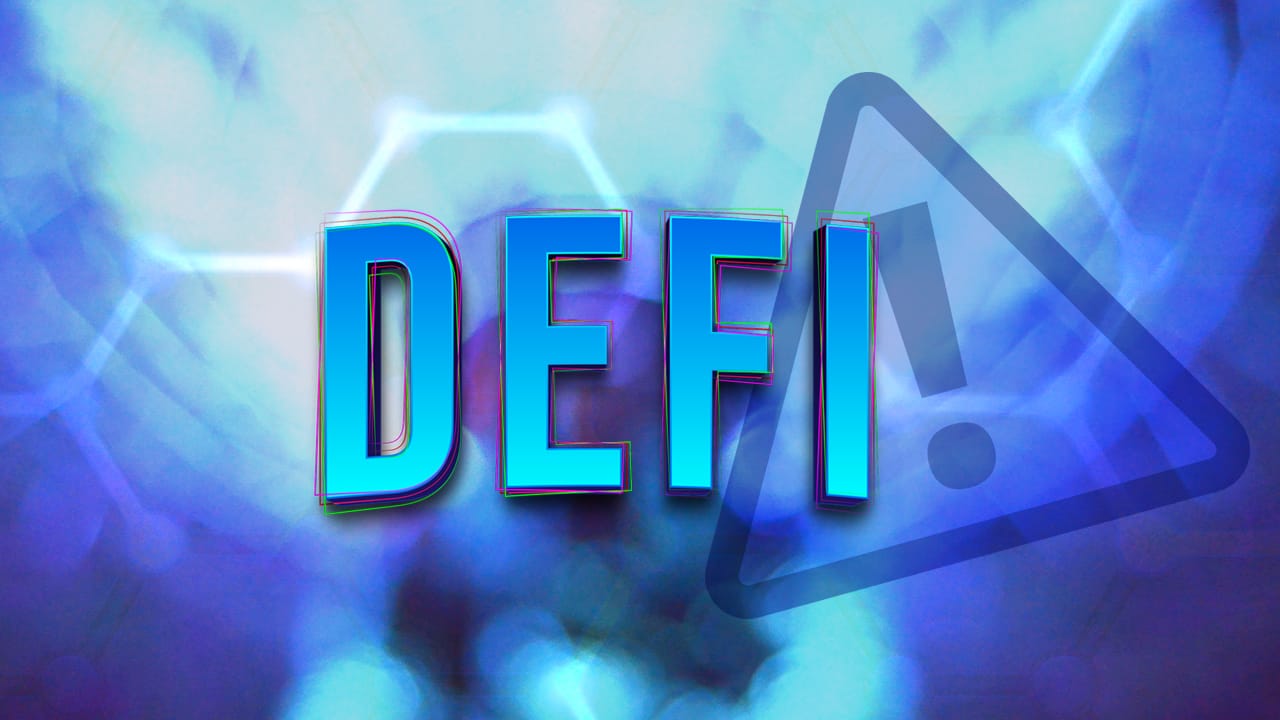
In the world of Defi, scams are unfortunately all too common. This article looks at popular Defi scams, how they operate, and how to protect yourself.
We’ll also provide tips on what to do if somebody scammed you and how to report a scammer. Finally, we’ll discuss the implications of DeFi scamming and present examples of successful prosecutions.
What Are DeFi Scams, and How Do They Work?
Decentralized Finance (DeFi) is a term that has gained enormous popularity over the years. DeFi is the shift from centralized financial systems to peer-to-peer finance enabled by decentralized technologies built on the Ethereum blockchain.
DeFi promises a more equal and accessible financial system, but it’s still largely unregulated. Lack of regulation has made DeFi a haven for fraudsters, who have plundered millions from unwary consumers.
We can summarize a typical scam in three steps:
- The scammer creates a fake project or impersonates an existing one.
- The scammer promotes the fake project or impersonates the existing one to generate interest and attract users.
- The scammer exits the scam, leaving users with worthless tokens or no access to their funds.
The Most Common Types of DeFi Scams
There are many types of scams in the DeFi sector, but some are more common than others. Let us look into a few of this industry’s most frequent criminal schemes.
Phishing scams
DeFi is not immune to phishing scams. Due to the intricacy of several DeFi protocols, fraudsters have managed to successful target newcomers.
The most common type of phishing scam in the DeFi space is impersonation. This is when a scammer creates a fake website or social media account that looks identical to a legitimate one.
They will then use this fake account to try and trick users into sending them money or personal information. Another common type of DeFi scam is the Ponzi scheme. Instead of investing the money, the fraudster pays out previous investors.
This scam is widespread in the DeFi space, as there are often high returns from investing in new protocols.
Scams Involving Fake or Stolen Identities
One of the most common scams in the Defi space is identity theft. Someone uses your personal information to register a new account or access an existing one.
They may also use your information to apply for credit cards or loans or to make purchases in your name.
Another way that identity theft can occur is when someone steals your private key or recovery phrase. This gives them access to your accounts and allows them to make changes or send funds without your permission.
Pump and Dump Schemes
If you are not new to the field of financial investments, then you must have probably heard about pump-and-dump schemes.
A group conspires to acquire a cryptocurrency at the same moment to drive up its price. Afterward, it sells it when at the peak price after promising a group of traders that this would not happen.
Pumpers make a profit, whereas dumpers lose. Sadly, it’s as simple as that. Pump and dump schemes are not new and have been around for quite some time. They are so common that the U.S. Securities and Exchange Commission has issued an investor alert about them.
Forgery and Counterfeiting of Digital Assets
Unfortunately, not every project in the DeFi world is legitimate and original. Forgery and counterfeiting are rampant, with scammers selling digital assets that don’t exist or aim to look like something else.
This scam generally happens when someone creates a website or social media account that looks identical to a legitimate project. However, the page has slight changes that allow the scammer to redirect funds to their wallet.
For example, a scam on Twitter happened when someone created a fake version of the popular Defi project Uniswap. The account looked identical to the official one, except that it had one letter changed in the URL.
This small change allowed the scammer to siphon over $150,000 worth of Ether (ETH) from unsuspecting users.
Fraudulent Activities Associated with Initial Coin Offerings (ICOs)
Last but not least, ICOs tend to have an association with fraudulent activities. In an ICO, a company offers digital tokens for investors’ fiat currency or cryptocurrency. However, many ICOs are scams, with companies using the funds raised to enrich themselves instead of developing the project.
A severe fraud associated with ICOs is when the team behind the project absconds with the funds. This type of fraud is, technically, an “exit scam.”
In an exit scam, the team often creates a fake project website and whitepaper, promising huge returns to investors. They will then raise money from unsuspecting investors and make off the cash, leaving investors high and dry.
How to Protect Yourself from DeFi Scams
At this point, you will probably be wondering how you can protect yourself from falling into one of these scams. Below are a few tips.
- Do your research: This is the most important thing you can do. When you are looking at a project, make sure to read up on it as much as possible. Look at the team’s backgrounds and the project’s roadmap, and try to find as much information as possible.
- Don’t invest more than you can afford to lose: This general rule applies to all investments, but it is essential in the DeFi space. These projects are still very new, and there is a lot of uncertainty surrounding them. As such, you should only invest an amount you are comfortable losing.
- Beware of social media scams: Social media is a great way to stay up-to-date on all the latest news in the crypto world. However, it is also an excellent way for scammers to reach many people. Be careful about the links you click on and the information you trust.
- Look for projects with KYC and audit certifications: If a project has undergone a KYC (know-your-customer) or audit process, it passed a vetting procedure. This adds an extra security layer and gives you peace of mind. SolidProof, PeckShield, Hacken, and Solidity Finance are popular companies taking care of this aspect.
What to Do If Somebody Scammed You
If you think someone scammed you, there are a few things you can do:
- First, try to resolve the issue with the person or company you believe scammed you. This may be difficult, but it’s always worth a shot.
- Contact your local consumer protection agency if you can’t resolve the issue.
- You can also file a complaint with the Federal Trade Commission (FTC) or the Better Business Bureau (BBB).
- Finally, you can contact a lawyer to discuss your legal options.
How to Report a DeFi Scam
If you think you’ve been the victim of a DeFi scam, consider taking a few actions to report the criminals.
First, report it to the project team or protocol developers if possible. They may help you recover your lost funds or take action to prevent others from being scammed in the future.
You can also report the scam to a crypto exchange or wallet provider. Obviously, this is applicable if you used any of these channels to access the DeFi project. Many of them have fraud departments that can help you get your money back or prevent future scams.
Finally, you can report the scam to law enforcement. This is often a long shot, but it’s worth doing if you’ve lost a significant amount of money.
The Consequences of DeFi Scamming
Besides losing your money, scamming in the DeFi sector has several adverse effects on the industry. For instance, it undermines the trust in decentralized finance protocols and gives scammers free marketing.
When a user falls into a scam, it’s not only the investor who loses money. The whole DeFi industry is negatively affected by it.
Scammed users will likely be more cautious in the future, leading to a decrease in trust in decentralized finance protocols. Using popular DeFi protocols and services, they can reach a larger audience and scam more people. In addition, it gives scammers free marketing.
Examples of Successful DeFi Scam Prosecutions
In recent years, there have been several successful DeFi scam prosecutions. Here are some notable examples:
In 2019, the US Securities and Exchange Commission (SEC) charged a company called EtherDelta with operating an unregistered securities exchange. The Ethereum blockchain-based decentralized exchange EtherDelta enables users to swap ETH and ERC20 tokens.
The SEC alleged that EtherDelta’s founder had illegally profited from the exchange by operating it as an unregistered broker-dealer. Coburn agreed to pay $300,000 in penalties and disgorge nearly $13 million in ill-gotten gains.
In 2020, the CFTC accused My Big Coin Pay, Inc. of running a fraudulent virtual currency operation.
My Big Coin Pay promised investors they could use virtual currency to buy and sell goods and services. However, the CFTC alleged that the company used investor funds to pay for personal expenses, including travel and luxury goods.
The CFTC ordered My Big Coin Pay to pay $6 million and disgorge nearly $360,000 in ill-gotten gains.
These are just a few examples of the many successful DeFi scam prosecutions that have taken place in recent years. These cases show that law enforcement is taking action against DeFi scams. If you have been a victim of a DeFi scam, you should contact a lawyer to discuss your legal options.
The Importance of Verifying Senders and Receivers Before Transferring Funds
One last thing you should consider before transferring funds is verifying both the sender’s and receiver’s addresses. Too many people have fallen victim to scams because they didn’t confirm the address before sending funds.
If you’re not sure how to verify an address, here are a few tips:
- Check if the address is valid on Ethereum’s leading network. You can do this by pasting the address into a block explorer like EtherScan.
- Make sure the address has a balance. If it doesn’t, that could be a sign that it’s not a valid address.
- If you’re sending funds to an exchange, check if the exchange has a page on EtherScan. If it does, compare the addresses to make sure they match.
These are just a few of the many ways you can verify an address. By taking these extra steps, you can help protect yourself from scams.
Bottom Line – Protecting Yourself from DeFi Scams Takes Education and Awareness
The best way to protect yourself from DeFi scams is to educate yourself and stay aware of the latest scams. Understanding how these scams work can help protect yourself and your hard-earned money.
Contact a lawyer to discuss your options if you think you may have been a victim of a DeFi scam. There were case
Press Release
Qubetics Near Listing, Mantle Dips, Gate Slips: Which Is Among the Top Cryptos to Watch?

The crypto market is evolving fast, but only a few projects are truly aligning with the future of Web3 usability and multichain access. Qubetics is now at the center of that conversation, having just launched its non-custodial multi chain wallet that lets users manage assets across Ethereum, BNB Chain, and Polygon, all without relying on third-party tools. Meanwhile, its ongoing presale reached Stage 37, with only 10 million tokens remaining at $0.3370, signaling urgency and growing market confidence.
In parallel, Mantle (MNT) has seen a minor price dip to $0.6361, offering potential entry for investors looking to accumulate scalable Layer-2 infrastructure while prices are low. Despite the drop, developer activity and upcoming roadmap catalysts keep Mantle relevant in discussions about long-term utility-based altcoins. For those looking for discounted exposure to Ethereum-based scaling, this could be a calculated risk worth considering.
Gate (GT) has declined by 2.13% to $16.95 on the centralized exchange front, raising questions about short-term sentiment around CEX tokens. However, with Gate.io’s expanding ecosystem including new staking features and lending tools, some people still view it as a steady, if slower-growth, asset. With each of these coins representing a different segment of the crypto world, the key question becomes: which one truly belongs among the top cryptos for massive growth right now?
Qubetics ($TICS) Stealing Spotlight with Interoperability
The Qubetics Network is set apart primarily by its strong emphasis on interoperability. Unlike many blockchain networks that operate in silos, Qubetics is designed to be a Web3-aggregated chain.
This means it integrates multiple blockchains, including Bitcoin, into a unified framework. Such architecture allows cross-chain transactions, data sharing, and asset transfers to occur effortlessly and securely.
This interoperability is crucial for expanding decentralized application (DApp) functionality and enhancing user access. Developers gain a cohesive environment where diverse ecosystems collaborate rather than compete. Leveraging cross-chain validation for enterprises and users reduces friction, increases scalability, and boosts the overall security posture.
Qubetics Presale Surge: 10x+ Return Potential in Final Stage
Latest News: Qubetics crypto presale enters its final Stage 37, only 10 million $TICS tokens left at $0.3370, with over 515 million sold and $18 million raised.
Early adopters are positioned for immediate upside as the token is projected to list near $0.40, a committed 20% gain at launch. Bigger buyers have a shot at dramatic upside, $7,000 invested could yield over $300,000 if $TICS rises to $15.
With supply slashed from over 4 billion to 1.36 billion and 38.55% allocated to the public, there’s a scarcity model similar to legacy index strategies—making this presale a leading purpose-fit engine among top cryptos for massive growth.
Qubetics’ mainnet launch in Q2 2025 adds to the credibility, early holders are locking in both future functionality and token price appreciation before full ecosystem rollout.
Qubetics Gears Up for Top Exchange Listing
What truly cements Qubetics’ breakout potential is its imminent listing on a top 10 global crypto exchange. This event alone is projected to increase price by 20%, immediately benefiting presale participants.
Mantle (MNT) Drops to $0.6361: Dip Could Be Entry Point for Growth
Mantle has retraced to $0.6361 with a soft drop of 1.08% on $130 million 24-hour volume. Known for its scalability enhancements and L2 value, Mantle’s dip softens the short-term sentiment—yet many analysts still consider it among the top cryptos for massive growth, citing its performance on network adoption and developer buildout post-Upgrades A and B.
A declining token price increases entry opportunity if its roadmap continues as planned. Investors may get L2 infrastructure exposure at reduced cost before the following catalyst events.
Caution is still warranted—network maintenance and gas dynamics must sustain user growth before declaring this a strong buy among growth leaders.
Gate (GT) Steady Amid Slight Decline
The Gate token dips to $16.95, down 2.13%, with a daily volume of $5.15 million. Gate is used within the Gate.io ecosystem for trading discounts, staking rewards, and governance voting. While usage remains stable, the declining token value reflects user sentiment lag.
Still, Gate.io’s growing user base and new CEX features (like C2C lending and derivatives) suggest a long-term risk-adjusted opportunity, putting GT in contention as a steady top crypto for massive growth based on exchange fundamentals.
But token economies on centralized platforms often underperform compared to utility-driven chains, so GT is best as a complement, not a core growth pick.
Conclusion:
While Mantle and Gate offer entry points based on infrastructure discount and ecosystem familiarity, Qubetics is a top candidate for the top cryptos to watch. With a use-case backed multichain wallet rollout, final presale scarcity, and planned mainnet launch, investors see utility and upside.
Mantle and Gate are viable for lateral infrastructure diversification, but neither offers the multi-dimensional functionality nor growth mechanics that Qubetics does. If you’re building a high-conviction altcoin strategy, Qubetics should be your headline.
For More Information:
Qubetics: https://qubetics.com/
Presale: https://buy.qubetics.com/
Telegram: https://t.me/qubetics/
Twitter: https://x.com/qubetics/
FAQs
1. Why is Qubetics a standout among the top cryptos for massive growth?
Its multichain wallet solves real-world usability and security issues across networks, combining presale scarcity with ecosystem integration.
2. How much ROI could early Qubetics investors expect?
Base presale gains are 20% at launch. If Qubetics hits $5–$15, ROI ranges from 10x to nearly 50x—strong growth target for altcoin investors.
3. Should I buy a Mantle now?
Mantle’s dip enhances value entry on an L2 scaling chain—but confirm upcoming roadmap updates before buying.
4. Is Gate a good investment at $16.95?
Gate token offers are upside linked to its exchange activity but exchange tokens depend heavily on volume and fee structure, limiting explosive growth.
5. Should I invest in all three?
Yes — Qubetics provides multichain utility, Mantle gives L2 scalability exposure, and Gate adds CEX-linked tokens. Diversifying across them balances innovation and stability.
Press Release
Cautious Moves for Ethereum, Rising Pressure on Hedera, and a $10.6M Milestone for Unstaked

In a market where sentiment shifts fast and narratives age even faster, Ethereum and Hedera are walking two very different paths, but both are converging around uncertainty. Ethereum is trading near a critical support level, struggling to maintain bullish momentum despite encouraging network growth and progress on the regulatory front. Meanwhile, Hedera’s price action is tightening, forming a chart pattern that often precedes big moves, yet the direction remains undecided.
During this back-and-forth, Unstaked has raised $10.6 million through its ongoing presale, attracting serious capital without the typical marketing blitz. It’s not trending for hype, it’s trending because early investors see structure, scalability, and a well-incentivized ecosystem.
Ethereum Stalls Near Key Support Despite Network Growth
Ethereum (ETH) is trading around $2,500, supported by a surge in new address creation, which has grown by nearly one-third compared to the same time last year, according to Santiment. This growth aligns with positive momentum surrounding the GENIUS stablecoin bill, which passed the U.S. Senate and is now awaiting House approval. If enacted, it would mark the first major crypto legislation in the U.S., potentially boosting institutional confidence.
President Donald Trump has urged swift passage of the bill, calling it a turning point for U.S. dominance in digital assets. Meanwhile, Ethereum continues to lead with a $126 billion stablecoin market cap on its Layer 1, representing over 50% dominance.
Technically, ETH is holding critical support at $2,450, backed by key moving averages. However, with declining volume and sideways indicators like RSI and Stochastic, momentum is fragile. A breakdown below this level could send ETH toward $2,110, while a move above the 200-day SMA may revive bullish sentiment and target higher channel levels.
Hedera Compresses as Technical Risk Builds
Hedera’s native token HBAR has dropped sharply to $0.1450, its lowest level since April 9 and about 35% below its May peak. This decline coincides with the formation of a death cross pattern on May 30, where the 50-day and 200-day EMAs crossed, a signal often associated with extended bearish trends. Despite the negative price action, Hedera announced a major ecosystem update: AUDC, an Australian company, launched AUDD, the first Australian dollar stablecoin on the Hedera network. AUDD boasts fast settlement and low fees, marking the first commercial use of Hedera Studio.
However, the network’s stablecoin supply has collapsed 82% from $216M to just $40M, raising concerns. Competing chains like Sonic and Unichain now hold over $380M in stablecoins each. Meanwhile, futures open interest in HBAR has dropped to $217M, down from a $308M high. Technical indicators such as RSI and MACD also continue to fall. If the downturn continues, price could slide toward $0.1200, unless it breaks resistance at $0.1855.
Unstaked at $0.012091: Quiet Execution, Real Utility, and $10.6M Raised
While Ethereum flirts with its technical floor and Hedera battles a confidence gap, Unstaked is moving forward with purpose. Priced at $0.012091, and targeting a launch price of $0.1819, Unstaked offers more than just upside, it offers clarity. The project has already raised over $10.6 million and completed 22 presale stages, all without influencer marketing or forced virality. It’s gaining traction because the fundamentals are doing the work.
Unstaked allows users to deploy autonomous AI agents that manage, grow, and engage online communities across platforms like X and Telegram. These agents generate real, on-chain performance data that ties directly to wallet ownership. Unlike passive tokens, Unstaked’s ecosystem is built for active participation, where only effective agents are rewarded through a transparent Proof of Intelligence system.
Adding fuel to its growth, Unstaked has launched a $1,000,000 giveaway, one of the largest presale-based campaigns in the space. 20 winners will each receive $50,000 in $UNSD, rewarded for completing tasks, referring others, engaging on social platforms, and purchasing a minimum of $100 in tokens. This isn’t a hype stunt, it’s a well-designed mechanism to bootstrap community contribution and filter for real users.
With an MVP on the way and multiple CEX listings planned, Unstaked is set to enter the market with strong liquidity and measurable utility. There are no private allocations, no hidden terms, and no speculative promises. For buyers seeking early positioning in something that’s functioning before it’s fashionable, Unstaked checks all the right boxes.
Wrapping Up!
Ethereum is holding the line, Hedera is testing its footing, and Unstaked is simply moving forward. In a market where hesitation can be costly, Unstaked is executing on a roadmap grounded in user mechanics, on-chain performance, and ecosystem incentives. It’s raised $10.6 million not through buzzwords but through visible progress. The contrast is clear. Ethereum and Hedera may both regain momentum in the right conditions, but right now, their paths are uncertain. Unstaked, by comparison, is operating with focus, growing with intention, and offering early participants a quantifiable advantage.
With 28x potential, a $1M reward structure, and functional technology already deployed, this is not just another token, it’s a platform positioning itself to define the next cycle.
Join Unstaked Now:
Presale: https://presale.unstaked.com/
Website: https://unstaked.com/
Telegram: https://t.me/UnstakedTokenOfficial
Press Release
Best Crypto For 2025: A Closer Look at Web3 ai, Cosmos, Chainlink, & Avalanche
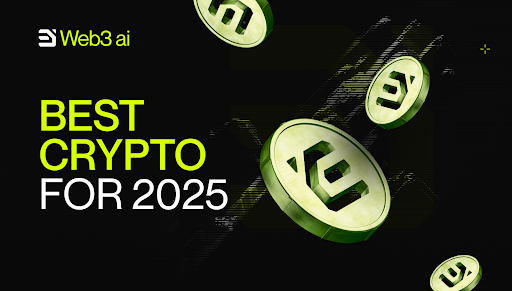
The crypto space is constantly evolving, and choosing where to invest can feel like navigating a maze. But when you’re looking ahead to the best crypto for 2025, a few projects are already turning heads with their tech, purpose, and staying power.
In this article, we highlight four standout cryptocurrencies: Web3 ai, Cosmos, Chainlink, and Avalanche. These aren’t just speculative plays. They’re platforms offering real utility, innovative features, and long-term potential. Whether you’re a newcomer or a seasoned trader, these are worth a closer look. Let’s see why they’re gaining attention as the best crypto for 2025.
1. Web3 ai: Using AI to Make Smarter Crypto Moves
Web3 ai is changing the way people approach crypto investing. It’s built around advanced AI tools that aim to make trading simpler and more effective. With real-time insights, portfolio tracking, and smart risk analysis, Web3 ai gives users an edge in a fast-moving market. The platform combines machine learning and natural language processing to help users act faster and with more confidence.
At the heart of it all is the $WAI token presale. It powers access to premium tools, allows staking, and gives holders a say in platform governance. Right now, $WAI is available at $0.000443 in Stage 9 of its presale, with the next price increase set for $0.000465. So far, $8.5 million has been raised.
What makes Web3 ai even more appealing is how easily it integrates with major wallets, DEXs, and multiple blockchains. For investors eyeing the best crypto for 2025, this is one project that combines accessibility with real functionality, making it a strong pick for the long term.
2. Chainlink: The Bridge Between Blockchain & Real-World Data
If you’ve been around crypto long enough, you’ve probably heard of Chainlink. It’s known for providing secure data feeds to smart contracts, which basically means it connects blockchains to real-world information. This is essential for DeFi applications, insurance protocols, and any project that relies on live data like pricing or weather conditions.
Right now, LINK is trading at $12.82. Despite some market fluctuations, the project keeps moving forward. New partnerships and integrations continue to expand Chainlink’s role in the growing DeFi ecosystem. Some experts expect LINK to reach $23.46 by 2026.
Chainlink remains a cornerstone for smart contract development. If you’re building a portfolio around the best crypto for 2025, LINK makes a strong case for inclusion.
3. Cosmos: Making Blockchains Talk to Each Other
Cosmos (ATOM) has been quietly solving a big problem in crypto: interoperability. In simple terms, Cosmos makes it easier for different blockchains to communicate and work together. That’s a huge deal in a landscape filled with siloed networks. Thanks to its design, Cosmos has become a critical player for developers building decentralized apps that need to operate across multiple ecosystems.
At the time of writing, Cosmos is trading at around $3.97. While the price dipped recently, long-term forecasts remain optimistic. Analysts see the token potentially climbing to $6.95 by 2026. ATOM holders also play an active role in network governance, helping shape the future of the protocol.
If cross-chain compatibility continues to rise in importance, Cosmos is well-positioned to meet that demand. It’s definitely one to watch if you’re thinking about the best crypto for 2025.
4. Avalanche: Built for Speed & Efficiency
Avalanche, or AVAX, has quickly gained recognition for its high-speed transactions and scalable infrastructure. Unlike many networks that slow down as activity increases, Avalanche is built to handle thousands of transactions per second. That efficiency makes it attractive to developers building dApps and financial platforms.
Currently priced at $18.34, AVAX has held steady with some expected market swings. But the real story is in its adoption. Avalanche is being used for everything from DeFi platforms to enterprise blockchain solutions. Analysts forecast the price could reach $22.29 by the end of 2025 and possibly hit $36.06 by 2026.
With fast finality, low fees, and a growing ecosystem, Avalanche stands out as one of the best crypto for 2025, especially for investors looking for performance and reliability.
Which Projects Deserve a Spot in Your Portfolio?
When looking at the best crypto for 2025, it’s smart to focus on fundamentals and real use cases. Web3 ai, Cosmos, Chainlink, and Avalanche each bring something unique to the table, from AI automation and cross-chain communication to real-world data delivery and lightning-fast transactions.
These aren’t just hyped coins, they’re foundational projects supporting the future of blockchain. Whether you’re drawn to Web3 ai’s AI engine, Cosmos’ interoperability, Chainlink’s oracles, or Avalanche’s performance, these picks have the potential to play a big role in the next wave of crypto growth.
If you’re building a well-rounded portfolio, keeping an eye on these four could pay off in the long run. They’ve got the tech, the teams, and the traction, and that’s exactly what makes them contenders for the best crypto for 2025.
-

 Crypto3 years ago
Crypto3 years agoCardalonia Aiming To Become The Biggest Metaverse Project On Cardano
-
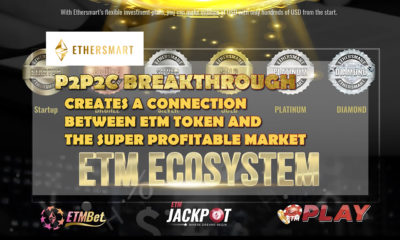
 Press Release5 years ago
Press Release5 years agoP2P2C BREAKTHROUGH CREATES A CONNECTION BETWEEN ETM TOKEN AND THE SUPER PROFITABLE MARKET
-
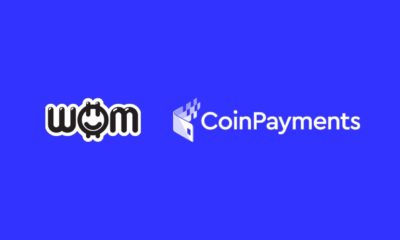
 Blockchain5 years ago
Blockchain5 years agoWOM Protocol partners with CoinPayments, the world’s largest cryptocurrency payments processor
-

 Press Release5 years ago
Press Release5 years agoETHERSMART DEVELOPER’S VISION MADE FINTECH COMPANY BECOME DUBAI’S TOP DIGITAL BANK
-
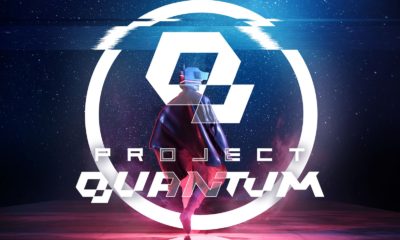
 Press Release4 years ago
Press Release4 years agoProject Quantum – Decentralised AAA Gaming
-

 Blockchain5 years ago
Blockchain5 years agoWOM Protocol Recommended by Premier Crypto Analyst as only full featured project for August
-

 Press Release5 years ago
Press Release5 years agoETHERSMART DEVELOPER’S VISION MADE FINTECH COMPANY BECOME DUBAI’S TOP DIGITAL BANK
-
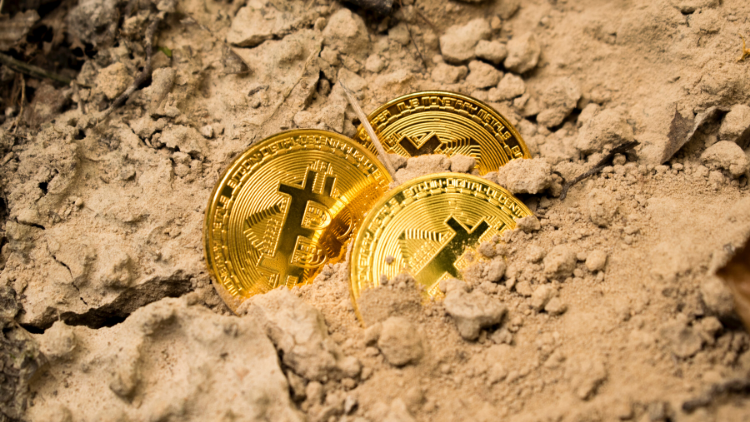
 Blockchain5 years ago
Blockchain5 years ago1.5 Times More Bitcoin is purchased by Grayscale Than Daily Mined Coins






